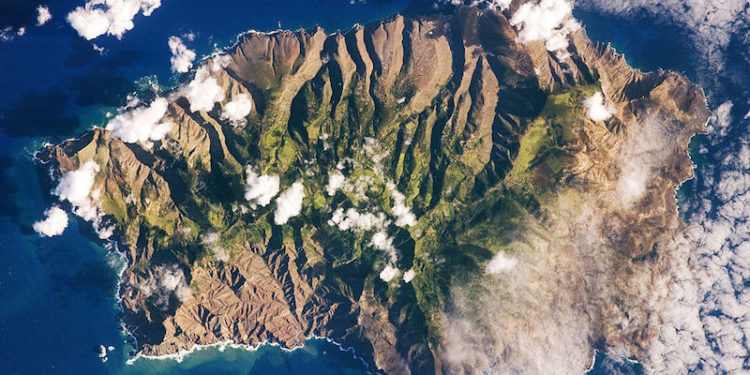The remote south Atlantic island of St Helena is about to establish the UK’s first one-by-one only tuna fishery in a vast marine zone that bans all forms of destructive fishing gear and only permits tuna to be caught one fish at a time.
The scheme has been publicised as having the potential to safeguard the future of one of the most remote island communities in the world, a British Overseas Territory that lies in the southern tropics of the Atlantic Ocean. A 47 square-mile island, it is one of the most remote settled islands in the world.
The island has a long tradition of responsible small-scale pole- and-line fishing where tuna are caught one-at-a-time. Today, however, the island’s resources are at risk and low prices fishermen receive for their catch also makes it difficult for fishermen to earn a decent living.
A new project, which has just been launched between the International Pole & Line Foundation (IPNLF), the St Helena government, the St Helena Fisheries Corporation and supported by local fishermen, is attempting to protect the fishery and bolster the returns to this remote island community.
The project aims to establish a conservation area throughout the entire St Helena maritime zone to shield a vast ocean area from harmful fishing activities and provide valuable protection for the local community’s low-impact, socially responsible tuna fishery.
‘While many small island countries and territories have committed to partial no-take areas, this will take marine conservation to another level entirely,’ said Stephane Weston, Business Manager & COO of the St Helena Fisheries Corporation.
‘Not only will the project provide a lifeline to St Helena, it is also an opportunity to define how fisheries should operate in the 21st century – a fully safe, sustainable and environmentally friendly fishing industry that is locally owned and operated. This project will also make a significant contribution to the local economy by producing high quality products for sale on the island and for export.’
Through this project, IPNLF and local partners aim to create policies to promote and protect St Helena’s unique ecosystem, as well as the sustainable small-scale tuna fishery that has been part of island community for decades. Over the next three years, the partnership will work with local government to ensure polices are adopted and implemented that ban all destructive fishing gears; enhance management; and strengthen monitoring, control, and surveillance (MCS) to prevent illegal fishing.
The project will establish best-practice traceability, transparency and data recording systems and improve safety-at-sea. Aligned with all of these measures, project partners plan to communicate the accomplishments of this fishery to a global audience, inspiring like-minded governments and coastal communities with this model that rewards low-impact fisheries and marine conservation.
‘For centuries St Helenians have had the closest of bonds with their surrounding waters and its precious resources,’ said Governor Lisa Phillips. ‘Our inherent respect for the marine ecosystem has ensured sustainability remains at the forefront of our fisheries policy, along with the need to provide a bright future for our fishing community. I therefore welcome the endeavours of IPNLF in helping us to implement a special marine conservation zone in which the island’s rich marine life is preserved and the commercial interests of those who earn a living from fishing is improved.’









